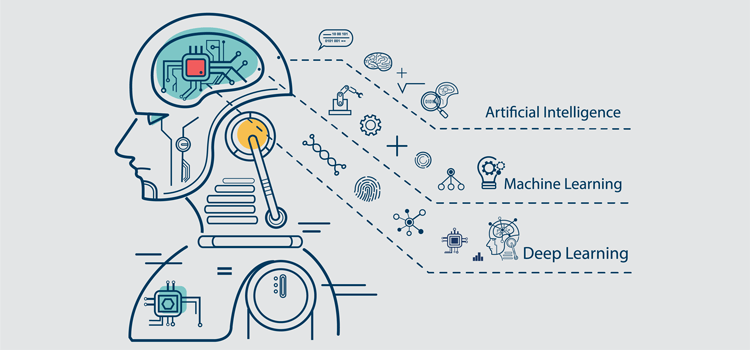Boosting Productivity: The AI Advantage in Modern Enterprises

Within today's fast-paced business environment, enterprises face an ever-increasing demand for efficiency and creativity. As organizations work to remain competitive with the competition, numerous have turned to artificial intelligence as a transformative tool. AI offers a distinct benefit that can improve productivity, optimize operations, and drive growth. Ranging from automating mundane tasks to providing deep insights through data analysis, the implementation of AI into business processes is transforming the way we work.
The advantages of adopting AI go beyond mere automation. With the ability to analyze vast amounts of data quickly and accurately, businesses can make informed decisions that lead to better outcomes. Furthermore, AI-powered tools enable employees to focus on higher-value activities, thereby creating a team that is both motivated and even more efficient. This shift not only boosts productivity but also cultivates a culture of creativity, allowing companies to respond swiftly to market shifts and changing customer needs. spintax ### Understanding Artificial Intelligence in our Workplace
AI is transforming business operations by boosting productivity as well as enabling effective decision processes. At work, AI technologies are able to process significant quantities of information at speeds far beyond what humans can achieve. This allows businesses to streamline repetitive tasks, allowing employees to dedicate themselves to more strategic initiatives demanding creativity from people as well as judgment. As companies evolve to the AI technology, they are finding fresh methods to improve workflows and boost efficiency.
Additionally, AI tools deliver valuable insights via analyzing patterns and trends in company operations. For example, predictive analytics utilizing AI can assist organizations project income, oversee inventory, and discover upcoming business opportunities. This degree of understanding helps organizations to act wisely and adapt rapidly to modifications in market conditions. By incorporating artificial intelligence into operations, organizations can gain a competitive edge and enhance responsiveness within a swiftly changing commercial landscape.
Another significant advantage of artificial intelligence in business is found in its potential to personalize customer experiences. AI-driven solutions have the ability to evaluate client information to offer tailored recommendations and boost customer service. Such personalization boosts consumer happiness while fostering loyalty, which are essential for the success of businesses over time. As artificial intelligence evolves, its capability to change consumer interactions and satisfaction should become even more pronounced, establishing its position as a key driver of productivity in contemporary businesses.

Executing Artificial Intelligence Solutions
Incorporating Artificial Intelligence solutions within business operations demands meticulous preparation and implementation. The primary step is to pinpoint particular aspects where artificial intelligence can enhance performance, such as simplifying standard procedures, improving decision quality, or improving customer interactions. Performing a thoroughgoing analysis of existing processes will assist identify shortcomings and possibilities for the integration of AI. Incorporating interested parties at an early stage in the process promotes alignment with business objectives and encourages a smoother implementation.
When potential applications for AI are determined, companies must select the best tech tools and platforms. This includes reviewing different artificial intelligence platforms, applications, and suppliers that align with the organization’s needs and resources. Additionally, staff training is vital to guarantee that team members understand how to utilize AI tools properly. This investment in knowledge amplifies the advantages of AI and fosters a climate of innovation inside the business.
In conclusion, organizations should track and measure the influence of AI solutions post-implementation. Gathering data on key performance indicators allows organizations to analyze the efficiency of artificial intelligence in achieving intended results. Continuous improvement should be the aim, as improving on AI strategies based on input and results will lead to greater productivity over the long term. business intelligence -thinking approach affirms that artificial intelligence continues to be a strong partner in propelling business success.
Evaluating AI-Supported Performance
Measuring performance in a organizational context is vital for understanding the impact of AI integration. Businesses can assess productivity by examining key efficiency indicators that reflect output, results, and quality. Using AI technologies, businesses can automate data collection and analysis, providing real-time insights into operations and performance metrics. This leads to a clearer understanding of how AI adds value productivity and points out areas where further enhancements can be made.
An additional effective method for measuring productivity is through workforce feedback and engagement surveys. AI can aid in aggregating and analyzing this qualitative data, giving organizations a complete view of how AI applications influence employee performance and satisfaction. By comprehending employees' experiences with AI solutions, companies can tailor their approaches to enhance the benefits of AI integration, ensuring that staff are supported rather than stressed.
Finally, organizations should think about benchmarking their productivity against sector standards or competitors. AI algorithms can detect trends and highlight discrepancies in performance metrics, making it easier for organizations to set achievable goals and expectations. By continuously measuring and comparing productivity levels, organizations can refine their AI plans and drive ongoing growth, ensuring they continue to be competitive in an constantly changing business landscape.
